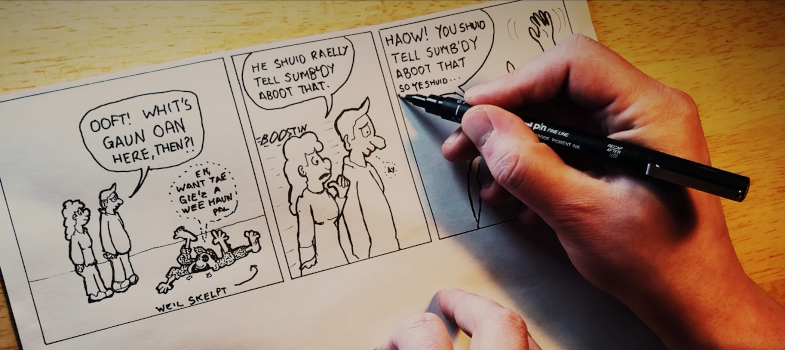Imaginative leaps
Section 2, Activity 3
In order to add variety, as I’ve outlined, I’ve attempted to vary the voices in terms of class, register, and form. But I also wanted to take an imaginative leap, and attempt to write in the voice of elements and inanimate objects related to the women. A case in point is my poem The River Kens Nancy Riach, celebrating the great sportswoman, Nancy Riach, known as the finest swimmer in the British Empire. Her story is poignant – she died of polio aged 20, at the height of her power. (In fact, she was struck down with polio in the water, during a swimming competition in Monte Carlo, and died shortly afterwards.)
I watched online a short Pathé News film (British Pathé, 1944), showing Nancy giving a diving and swimming demonstration, one summer during the 2nd World War. People crowd round to watch her. At the very end of the film, Nancy steps up to the diving board again, and stands there, the camera angled from below, as if the river itself were looking up at her. She smiles, clearly happy with the demonstration she has given. She seems so utterly natural in the water, as if she and the river are completely at one. I imagined the river would look forward to being dived into by Nancy Riach, that it would delight in being part of her enormous skill and success. So, the river itself became the voice of this poem. And the river spoke in Scots – I don’t know why – it just did. Perhaps it was my subconscious awareness that, although the sound for this wonderful little Pathé News film has been lost, I recall well the stiff upper lip British establishment voice of those 1940s TV commentaries, whereas Nancy, in contrast, looks so quintessentially earthy and natural, just like her element, the river.
Take a note in your Learning Log (opens in new tab) addressing these points:
Watch the Pathé News film (British Pathé, 1944) and take a note of any thoughts that come to you mind.
What is the impact of using the river as the voice speaking to you as a reader/listener of this poem in Scots?
Consider the Scots phrases the river’s voice uses to describe Nancy. What impression do you get as a reader of the swimmer through these?
nae falderals, nae fuss
a keekin-gless
a birlin bird, whirlin through the lift
fleet as a flane
a glent o flesh in the licht
Is there a way in which you could use the poem, the recording, or my comments in your teaching?
